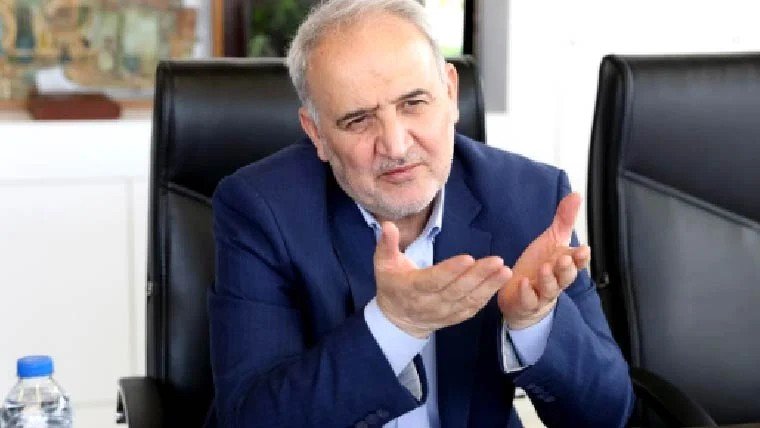In a rare and dramatic move, the United States Federal Bureau of Investigation (FBI) has added Iran’s ambassador to Pakistan, Reza Amiri Moghadam, to its Most Wanted list. The announcement has sent ripples across the global diplomatic landscape and raised significant questions about the intersection of espionage, diplomacy, and international law.
The Accusations
Reza Amiri Moghadam, a high-ranking official in Iran’s Ministry of Intelligence and Security (MOIS), has been accused of being involved in the abduction and probable death of former FBI agent Robert “Bob” Levinson. Levinson disappeared under mysterious circumstances on Kish Island, Iran, in 2007. Though Iran denied any involvement for years, U.S. officials have long suspected the Iranian intelligence apparatus played a central role in his disappearance.
According to the FBI and U.S. Department of Justice, Moghadam and two other Iranian intelligence officers—Gholamreza Hosseini Mohammadnia and Tawhid Daneshvar—were involved in a state-directed operation to kidnap Levinson. All three individuals have now been officially named in FBI posters seeking information and assistance in bringing them to justice.
Notably, Amiri Moghadam holds full diplomatic status as Iran’s official envoy to Pakistan, making the accusations not only legally complex but diplomatically explosive.
Diplomatic Immunity vs. Criminal Allegations
The inclusion of a sitting ambassador in a Most Wanted list is virtually unprecedented in modern times. Under international law—specifically the 1961 Vienna Convention on Diplomatic Relations—diplomats enjoy broad immunity from arrest or prosecution in their host countries. However, that immunity does not extend to actions taken outside the host country or before the individual assumed diplomatic status.
By naming Moghadam, the United States is asserting that diplomatic immunity does not shield him from accountability for crimes allegedly committed nearly two decades ago.
This has raised thorny questions: Should a diplomat be held accountable for past crimes? And if so, how can the international community navigate the legal and ethical terrain without setting dangerous precedents?
Repercussions in Pakistan
Pakistan, which maintains complex and sometimes tense relationships with both Iran and the United States, now finds itself in a delicate position. Islamabad has so far refrained from issuing any official statement on the matter, likely weighing its options carefully.
Iran is a critical neighbor and a fellow Muslim-majority country with whom Pakistan shares deep economic and cultural ties. At the same time, the United States remains one of Pakistan’s largest trading partners and has long been a dominant influence in South Asian geopolitics.
Any move to expel or even restrict the movements of the Iranian ambassador could result in diplomatic fallout with Tehran. However, ignoring the development altogether may strain relations with Washington.
Sources close to Pakistan’s foreign ministry have indicated that internal consultations are underway to determine a balanced course of action.
Iran’s Response
Iran has strongly condemned the U.S. move, dismissing the charges as “baseless” and “politically motivated.” The Iranian foreign ministry issued a statement labeling the FBI’s action as an extension of America’s “maximum pressure” campaign against the Islamic Republic.
Iranian state media has portrayed Moghadam as a seasoned diplomat with a clean record, accusing the U.S. of fabricating charges to derail Iran’s regional diplomatic outreach.
Some analysts believe this move may also be part of a broader U.S. strategy to counter Iran’s growing influence in Pakistan and Afghanistan, especially as the geopolitical chessboard continues to shift in the post-Afghanistan-withdrawal era.
The Bigger Picture
The development comes at a time when U.S.–Iran relations are already strained, following the collapse of the Iran nuclear deal talks and rising tensions over Iran’s regional activities. The naming of an Iranian diplomat on the FBI’s Most Wanted list escalates those tensions and may complicate any future attempts at rapprochement.
Moreover, it sets a controversial precedent: if a diplomat can be named in criminal investigations for acts allegedly committed prior to their diplomatic tenure, it may open the door for other countries to take similar actions—raising the risks of politicized accusations and retaliatory moves.
What’s Next?
While Reza Amiri Moghadam is unlikely to be extradited or arrested while serving in Pakistan under diplomatic protection, his ability to travel internationally may now be severely restricted. Countries allied with the U.S. or hosting U.S. bases may deny him entry or detain him if he travels beyond Pakistan’s borders.
For now, Islamabad will likely continue to observe a cautious approach, attempting to avoid entanglement in a conflict between two powerful adversaries. But the situation is fluid, and any misstep could have broader implications for regional diplomacy and intelligence cooperation.
Reference: پاکستان میں ایرانی سفیر امریکہ کی انتہائی مطلوب افراد کی فہرست میں شامل







